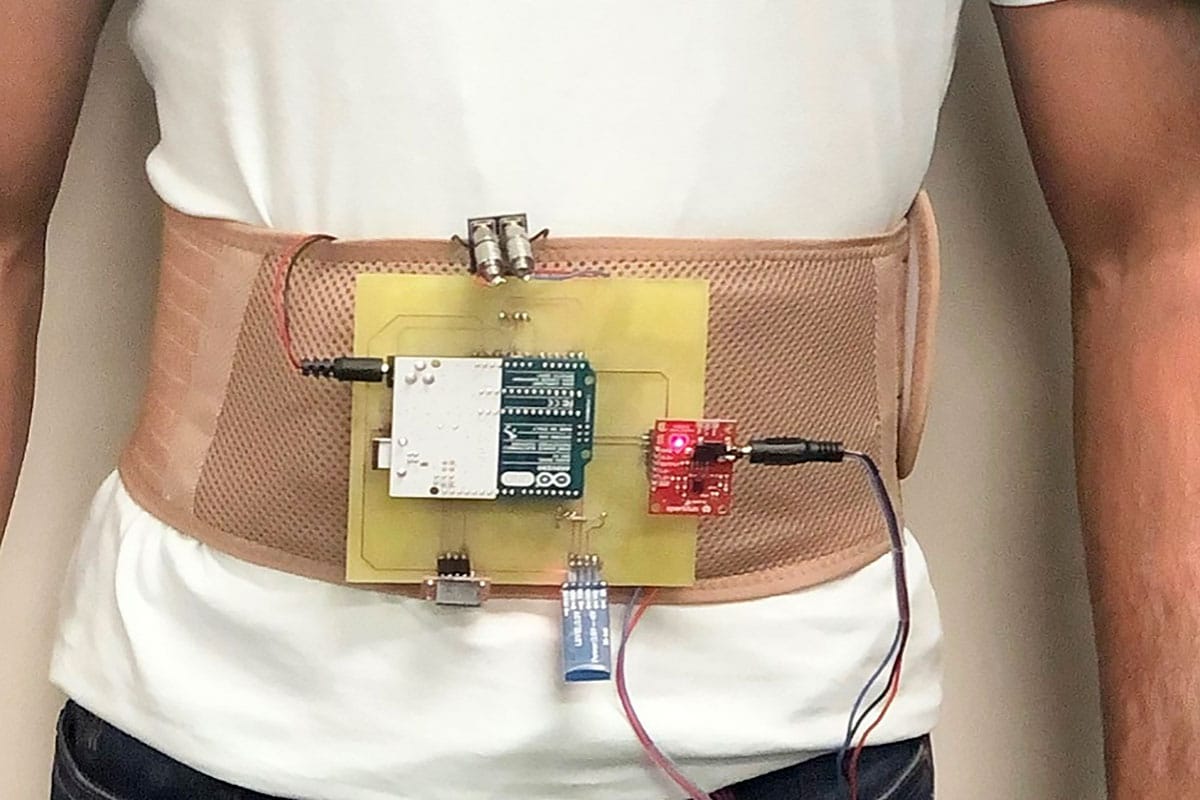
Heart failure is a chronic disease; the symptoms occur due to a lack of cardiac output. It can be better managed with continuous and real-time monitoring. Two heart failure monitoring systems are currently available, but they are expensive and pose risks because they are surgically implanted under the skin. So, there is a critical need for non-invasive solutions to monitor heart failure progression around the clock.
Now, researchers from Florida Atlantic University have developed a prototype of a novel wearable device that can continuously monitor all of the physiological parameters associated with heart failure in real-time.
The technology is based on sensors embedded in a lightweight belt conveniently worn around the waist to monitor thoracic impedance, electrocardiogram (ECG), heart rate, and motion activity detection. The system uses different sensors for sensing these parameters. Thoracic impedance refers to the hindrance to the flow of an electrical current carried by ions across the chest, and it’s a critical bio-signal to monitor heart failure progression. Similarly, ECG is a vital bio-signal to diagnose and predict cardiovascular diseases.
For the study, researchers tested the wearable device in different conditions, including sitting, standing, lying down, and walking. The results were obtained for each of the sensors sequentially. The physiological parameters selected are significant in determining heart failure symptoms. Findings showed that all of the sensors kept track of the changes for all of the different conditions.
“All of the sensors we integrated into our belt module can easily be worn for a long period of time without affecting the patient’s daily activities,” said Waseem Asghar, Ph.D., senior author and an associate professor in FAU’s Department of Electrical Engineering and Computer Science. “Importantly, continuous and real-time monitoring of heart failure symptoms could alert patients and their health care providers of the patient’s declining health. In turn, health care providers could intervene with medications to avoid patient hospitalization.”
Based on the study results, the researchers are currently testing the device on a diverse set of subjects to develop an algorithm to predict heart failure in the test set. The researchers expect that their technology will have higher predictive values for heart failure with increased specificity and high sensitivity.
Journal reference:
- Sheikh M. A. Iqbal, Imadeldin Mahgoub, E Du, Mary Ann Leavitt, and Waseem Asghar. Development of a wearable belt with integrated sensors for measuring multiple physiological parameters related to heart failure. Scientific Reports, 2022; DOI: 10.1038/s41598-022-23680-1
Wearable belt with integrated sensors monitors heart failure around the clock
Source: Tambay News

0 Comments